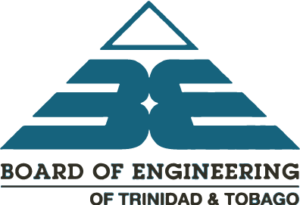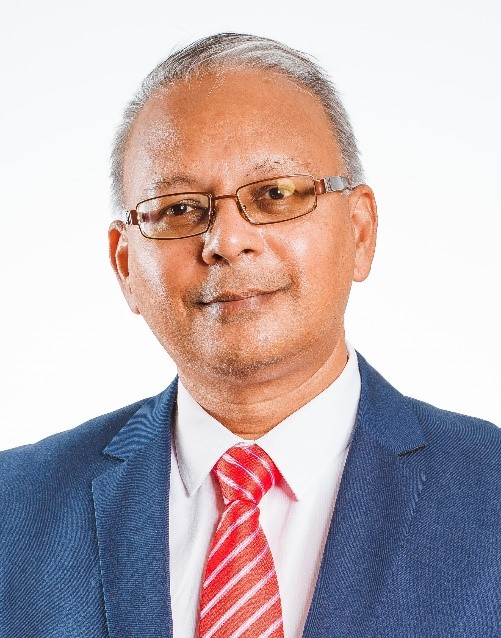Eng. Dexter Daniel, BSc., M.Sc., R. Eng, PMP
A Chat with Engineer Dexter Daniel, Public Relations Officer of the Association of Professional Engineers of Trinidad and Tobago (APETT)
Engineer Dexter Daniel is a Mechanical Engineer who is passionate about developing the next generation of leaders in the country and currently mentors engineering groups from the Association of Professional Engineers. In this interview with the BOETT, the newly elected PRO of APETT discusses key initiatives to enhance the association’s influence and visibility in Trinidad and Tobago with a focus on legislative progress, professional development, and public engagement. He shares his plans to elevate the profession through visibility, collaboration, and impactful initiatives. He aims to lead with impact, focusing on legislative change, industry collaboration, and dynamic member engagement all in all to enhance the association’s public image and influence policy. The Board of Engineering wishes Engineer Daniel every success in his new endeavor and looks forward to continued collaboration between our two organizations.
Q1. Congratulations on your election as APETT’s Public Relations Officer! Can you tell us a bit about your background and what led you to this position?
Thank you for the opportunity to discuss this appointment on the Executive Council of APETT. I served on the Executive Council from 2018-2022 as the Chair of the Mechanical Division so I am familiar with the organization’s operations.
During my term as Chair of the Mechanical Division, I was excited to select speakers for our technical sessions and was always on the lookout for new speakers who can bring diverse topics to share with our membership. The focus was on empowering topics- leadership, project management, personal branding, and critical thinking to name a few, as I felt that there was a gap in the industry and during the pandemic, there was a need for discussions that could bring a level of Hope.
Truth be told, I contested the position of President-elect at the AGM, which I lost to Eng. Cox. When nomination was open for the position of PRO, and at the prompting of past President Trevor Townsend, I accepted and emerged as the only nominee for the position.
Q2. What key initiatives do you plan to implement to enhance the association’s public image?
I believe the proclamation of the Engineering Profession Act which requires the mandatory registration of professional engineers to practice in Trinidad and Tobago can significantly impact the association’s public image. This legislation has been delayed for too long and it is time to expedite the process through a more focused approach and collaboration with the legal profession. The PRO can initiate and reactivate the efforts while reaching out to other stakeholders to remove the obstacles either real or perceived.
The association’s image requires bolstering through improved visibility and relevance, particularly at major technical conferences -Energy Chamber and AMCHAM come to mind. I attended both recently and there was a noticeable absence of APETT. These conferences are technical with engineering systems presented, which is an ideal networking forum. In addition, the association must partner with these organizations on matters regarding safety, process, technical and national issues requiring engineering input. The association must also present papers at these conferences and be a formidable advocate for engineering solutions which are sustainable, technological and innovative at the core.
Q3. What new communication strategies do you intend to implement to improve member engagement?
Enhanced membership commitment must be driven by the Executive at the Divisional levels. There must be regular communication and greater accountability of all elected officers as volunteerism does not often have a great sense of urgency and efficiency.
The number one stated objective of the association is to safeguard the life, health and welfare of the public; however, we have remained silent on many national issues- the Paria divers’ tragedy which captured national attention is one example. I suggest that it is imperative for the formation of an HSEQ committee that engages with other industry professionals as a top priority to increasing our relevance in society and industry. During 2025 engineering week which coincided with carnival celebrations, I accompanied an APETT Engineer attached to NCC technical team on a site visit to the Queen’s Park Savannah site to observe the temporary structures which were erected using scaffolding equipment- performing stages, advertising towers, and fences. When asked about the engineering design and approvals for these structures we were told that none existed. From my scaffolding background, this represents a serious non-compliance with scaffolding codes which require engineering input to ensure public safety. I suggest that the Ministry of Works, Port of Spain City Corporation, NCC and even OSH Agency need to have discussions regarding the integrity of temporary structures for carnival celebrations. I have written an article entitled “Integrity in Temporary Structures for Carnival 2025” which was published in the newspaper. It was also sent to APETT to be uploaded to the website.
Q4. What channels do you believe are most effective for engaging with the public and promoting the engineering profession?
The current Memorandum of Understanding (MOU) with organizations must be revisited to ensure that the objectives are clearly stated and collaborations are underway. APETT has representatives that sit on boards of many organizations- JCC, TTBS, OSH Agency and there is an expectation that the association should be in a better position to leverage the relationships for better engagement with the public. In many cases, opportunities are disguised as problems to be solved.
Q5. Can you share any campaigns or initiatives you have in mind aimed at promoting the association?
Targeting the energy and petrochemical sectors can be a low hanging fruit as partnering with the Energy Chamber and its members can lead to increased membership and possibly, sponsorships for APETT’s Technical Conferences. In addition, greater impact can come from APETT’s participation at school career guidance fairs across the country. A first step will be for members of the executive to reach out to their alma mater to offer support. I have supported my alma mater for several years with their career seminars.
Q6. What are your plans to improve communication and involvement among existing members?
Proper and effective communication requires more than a casual approach, which is often the price that we pay for volunteerism and having dedicated resources for communication and website and social media updating can make a significant impact on membership growth and involvement. I believe that Divisional technical sessions have the potential to draw audiences of over 100 persons. For example, the Civil Division recorded an attendance of 140 for a session on Retaining Walls which was conducted via a hybrid format. The proper marketing of these sessions is key to reaching engineers and other technical persons including engineering students to share information. In addition, these sessions are excellent channels to engage membership as well as to increase income for the association, through paid sessions that offer CPDs.
Q7. How do you intend to attract new members to the association?
I believe that student membership must be mandatory for all new engineering students at UWI and UTT. This should be driven at the start of the academic year and supported by all Divisions. A budget must be allocated for distribution of APETT memorabilia etc. to students.
Q8. Can you describe any specific programs or events you have planned to increase member participation?
A mentorship program will link senior engineering mentors with younger engineering mentees and create a platform that can inspire innovation and collaboration. More significant can be preparing future leaders for life skills. I am a product of an engineering mentorship program under the guidance of former APETT Presidents Engs. Emile Charles and Jerry Medford.
Engineering week celebration is another opportunity to engage in social/ networking activities where we can host our MOU partners. Activities including football competitions, all fours, duck cook- out etc. have tremendous benefits in interactions with persons from these organizations.
Q9. How do you plan to foster relationships with media outlets to ensure positive coverage of the association’s activities and the profession?
The media coverage of our major activities such as Honors and Awards ceremonies is important to reach out to a wide cross section of the public and can feature heavily in highlighting the work of the awardees. In addition, the association must be seen by the public as an entity which provides solutions to real world problems. I firmly believe that the association should offer support to the Ministry of National Security with a vehicle management/maintenance system. In addition, our border surveillance is compromised through vessel repair/downtime, which is another avenue for an engineering strategy or solution.
Q10. Can you share any plans for regular updates or reports to keep members informed about PR activities and achievements?
The PEN magazine will be the preferred mechanism for updating membership. This requires a team approach and should have a life longer than the term of the PRO.
Q11. Looking ahead, what long-term goals do you have for the Public Relations Office and the association as a whole?
The Public Relations Office needs a team to effectively address the objectives. The chairs of all Divisions and APETT’s secretary should be co-opted into this team, together with members who are willing to support.
Q12. How do you hope to see the association evolve by the end of your term?
I really would like to see the revision to the Engineering Profession Act proclaimed, which is an objective that I share with the President. Increased membership by 10%, publication of 2 PEN articles, Divisions must complete at least 1 in -person event and hold 6 technical sessions. The association must lead the formation of a National Health, Safety and Quality group to respond to and advise on national safety and quality issues. All MOUs must move from the document stage to the action stage for the association to have greater relevance and industry reach.


